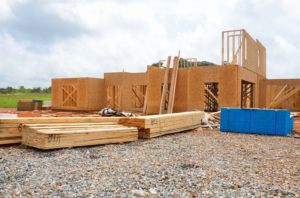Radon-Rid, LLC Discusses Whether Builders Are Liable for Radon Gas in Homes
 Did you know that every year 21,000 deaths are related to radon gas? The unintentional inhalation of radon gas is now the second leading cause of lung cancer in the United States. The odorless, noxious gas can seep into a home from contaminated soil through foundations and other points of contact.
Did you know that every year 21,000 deaths are related to radon gas? The unintentional inhalation of radon gas is now the second leading cause of lung cancer in the United States. The odorless, noxious gas can seep into a home from contaminated soil through foundations and other points of contact.
Out of all the states in the country, Pennsylvania has one of the highest overall levels of radon gas. The Pennsylvania Department of Environmental Protection estimates that 40% of PA homes have radon gas levels above the Environmental Protection Agency’s (EPA) guideline. The EPA strongly recommends taking action to mitigate radon found in homes or structures at levels of 4 picocuries per liter and above. In Pennsylvania the average residential radon level is at a dangerous 7 picocuries per liter. Those looking to construct or renovate houses in Pennsylvania need to take extra caution to ensure that radon levels in residential houses are safe for everyday living.
Why do Builders or Contractors Need to Worry About Radon Gas in Homes?
While home builders or contractors have no legal responsibility if radon gas is found in a home, one might argue that an ethical obligation exists. In many states, a radon inspection is part of the process a buyer or his realtor will insist upon. The EPA recommends that sellers test their homes and take any necessary remediation action before putting a house on the market. Similarly, the Pennsylvania Real Estate Act requires that sellers disclose the results of any known radon testing to potential buyers when a house is on the market. Moreover, as more people are becoming aware of the dangers of high radon gas levels, having the testing and any necessary mitigation done beforehand will be a selling point and could prevent delays in the sale process.
What Preventive Actions Can Be Taken?
Taking preventive measures during construction or a remodel is important to ensure that radon levels stay in a safe zone. Taking steps during construction or remodeling could be a selling point for future owners who will be able to save money, as the expenses to set up remediation systems in an already constructed building will be higher. Doing so is aesthetically pleasing as well, as these systems can be discreetly built into the construction rather than outside of the original building later on.
The Pennsylvania Department of Environmental Protection recommends installing a passive radon prevention system during construction, which can be done by a contractor or a certified radon remediation company. Testing for radon may be done after construction is completed, and the passive system can be activated if needed to reduce radon levels. Having remediation for high radon gas levels done by certified radon specialists will give you peace of mind and ensure the highest standard of quality in the long run.
Radon-Rid, LLC Provides Radon Gas Testing and Remediation for PA Contractors
Radon-Rid, LLC is certified by the Pennsylvania Department of Environmental Protection to provide testing and radon remediation services. Our team would be happy to help you find the right remediation systems for your next construction or renovation project. We are committed to providing the highest quality of services to all our valued customers. For more information or to set up a consultation, please contact us at (610) 624-6928.
Related Posts
Why Are More People Testing for Radon in 2020?
Why Should I Hire a Professional Radon Testing and Remediation Company?
Is Radon Testing Necessary When Buying A Home?
We Want to Help
"(required)" indicates required fields
Categories
- Blog (48)
- Environmental Pollution (2)
- Family Health (9)
- In the News (10)
- Lung Cancer (5)
- Radon Remediation (10)
- Radon Testing (24)
Radon – The Silent Killer
Radon In Your Home
- Learn More About Radon Levels in Your County
- Take a few minutes to browse our Get To Know Radon Online Presentation.
- When you are finished, be sure to tell a loved one about our testing programs offered in Berks, Chester, Delaware, Lancaster, Montgomery & Philadelphia Counties.